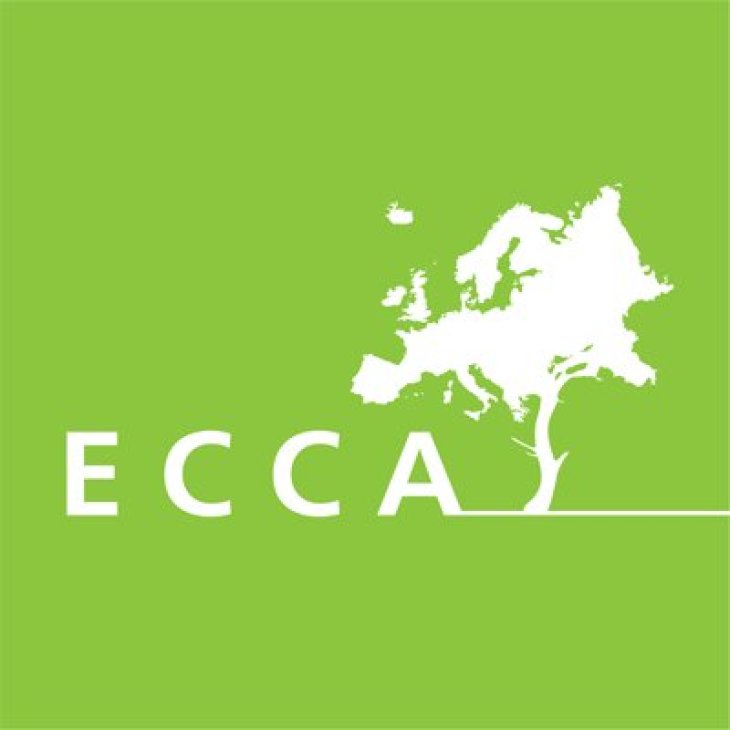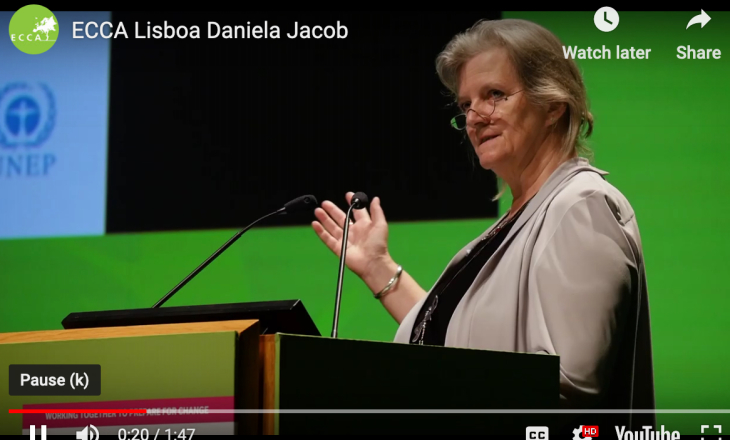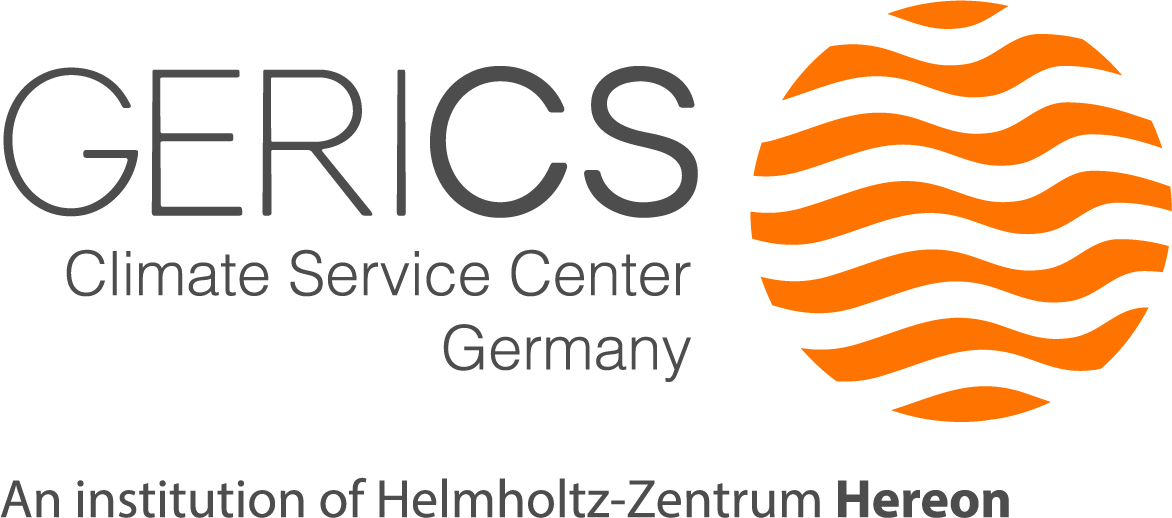GERICS at the ECCA 2019
European Climate Change Adaptation Conference 2019, May 28 - 31, 2019 in Lisbon

The ECCA is one of the largest conferences on adaptation to climate change. It takes place every two years in Europe. Actors from science, politics as well as practice partners and non-governmental organizations come to the ECCA to promote adaptation to climate change on a global and local level and to present new research results and implementation experiences of adaptation projects.
On Tuesday, May 28, the event opened with a plenary session in which Daniela Jacob gave a talk on the key messages of the IPCC Special Report on 1.5 ° C Global Warming.

"Daniela Jacob from the Climate Service Center Germany – GERICS highlights the importance of the IPCC report, 1.5 degrees. The report highlights how the impact, extremes and vulnerabilities experienced will be less if we limit warming to 1.5 degrees rather than 2 degrees. She also comments that the changes needed are doable if we all take steps to reduce our carbon footprints, but that industry use take responsibility too. Daniela goes on to say how important it is to share knowledge so it is transferable and leads to action." (cited after ECCA 2019/Youtube)
Short interview with Daniela Jacob on her keynote speech
GERICS was represented at the ECCA as convener of Sessions:
- “Knowledge integration as science based-decision making for adaptation strategies” Adaptation strategies to reduce the negative effects of climate change are needed at every institutional level. The development of these strategies is a complex process involving variety of actors from scientist and policy makers to civil society members.
Chair - María Máñez Costa - “Climate services and methods for hydrology and flood control” Summary of research and experiences with co-production of knowledge, solutions and services – models, web-based tools, apps – that focus on the water sector, addressing risks and opportunities in the management of floods and droughts in Europe.
Chair - Louis Celliers - "User expectations for a European Climate Prediction System" This session brought together climate modelers and societal stakeholders to discuss potential applications of seamless climate predictions in Europe on time scales from 1-40 years. One of the major key issues is the development of a climate service that will directly benefit the users by offering a seamless and robust climate information with clear and comprehensive documentation of uncertainties.
Chair - Sebastian Bathiany - "The water-energy-land nexus under climate change: from adaptation and mitigation case studies to services, products and implementation challenges" Chair - Roger Cremades
- “Climate services and methods for agriculture and food production” Showcase of examples of co-production of knowledge, solutions and climate services focused on the agricultural and food production sectors in Europe and selected developing countries, including different methods and tools – models, apps – to deliver effective solutions.
Chair - María Máñez Costa
as well as numerous other lectures:
- "Presentation of the INNOVA-Project" Louis Celliers
- “Knowledge integration as science based-decision making for adaptation strategies” Eulalia Gomez
- "Learning from the south on drought management: Conditions for successful policy learning" María Máñez Costa
- "Climate change adaptation options for the European water sector" David Williams
- “Modelling the Inland Waterway Transportation Operations Supported by Navigation-Related Probabilistic Forecasts under Projected Drier Climate" Conditions” Dmitry Kovalevsky
- "Climate Services and the water-energy-land nexus: if we fail on one, we will fail on the other?" Roger Cremades
- “The system dynamics of the nexus in the tourism sector" Roger Cremades / Muhamad Bahri
- "The GERICS Regional Modelling Toolkit: Towards an integrative modelling approach for science-based decisions to create cross-sectoral, regional climate adaptation" Elisabeth Viktor
- “EU LIFE programme: Supporting integration and co-production of climate change adaptation in small and medium-sized municipalities across the EU” Torsten Weber / Jörg Cortekar
- “Simulating complexity of urban systems in the context of climate change through system dynamic modelling” Dmitry Kovalevsky / Cristóbal Reveco
Daniela Jacob gave a keynote speech at a side event of JPI Climate on Monday, 27 May on "Climate services: state of affairs, relevance for users and the way forward" and Jo-Ting Huang-Lachmann presented the ERA4CS / H2020 project INNOVA ,
ECCA Side Event: Climate services: state of affairs, relevance for users and the way forward
